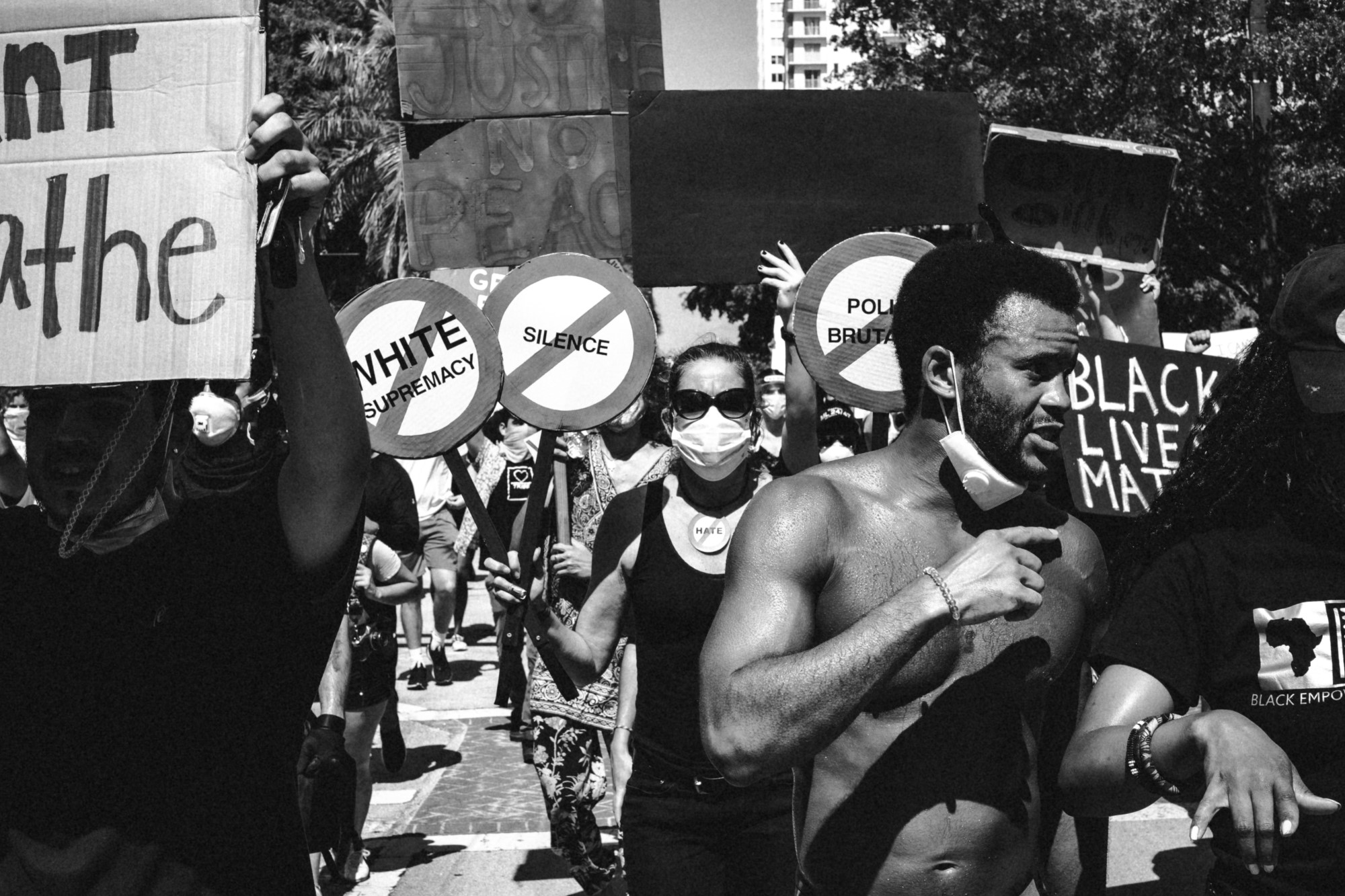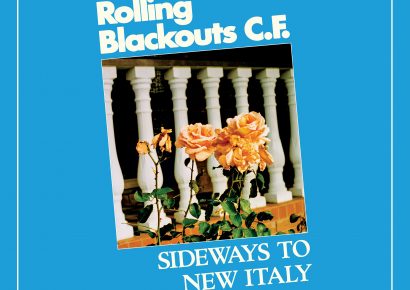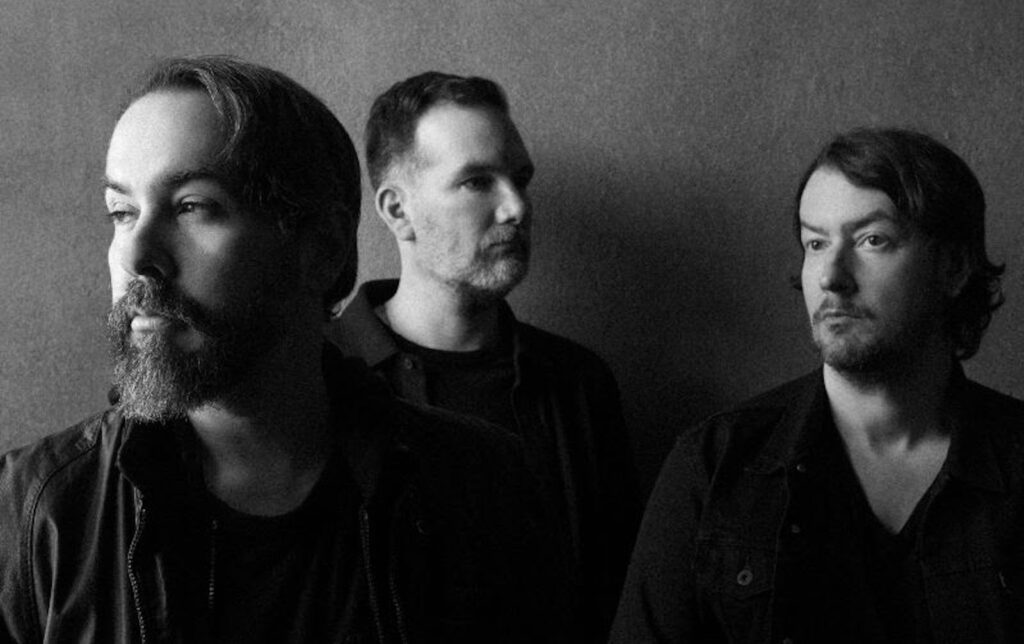Sing it loud and sing it proud.
Music has acted as an agent of change throughout history. It’s brought people together and given a united voice to the people. It’s been banned and silenced and it’s been brandished in the face of injustice and fuelled the flames of rebellion. It’s sparked entire social movements and soundtracked some of the most historic moments the world has seen. It’s given words to those too tired and angry to find their own.
The current riots and protests happening across America and around the world have seen a resurgence in protest songs penned in entirely different eras and inspired by various events, from times of war to the Civil Rights movement, yet the fact that their lyrics remain provocative and pertinent to the situation currently unfolding is a testament to the timelessness of protest songs. Here is a (by no means exhaustive) list of some of the songs that truly exemplify the power of music.
The Revolution Will Not Be Televised by Gil Scott-Heron
When Gil Scott-Heron wrote ‘The Revolution Will Not Be Televised’, he didn’t mean it in a literal sense – in fact, we know the opposite to be true. The poem-cum-spoken-word track means to say that you cannot be part of the revolution from your couch and no matter how many channels are covering what’s happening, “You will not be able to plug in, turn on and cop out“. Media controls the narrative in whatever events it portrays, so unless you are on the streets fully immersed in the revolution, you aren’t getting the whole story. In a 1990 interview, Scott-Heron surmised the track perfectly when he said, “The thing that’s going to change people is something that nobody will ever be able to capture on film.”
Fuck Tha Police by N.W.A
N.W.A’s 1988 single ‘Fuck Tha Police’ remains one of the most controversial songs in music history. Written in response to recurring police brutality towards America’s black community, the track slams racial profiling and police treatment of people of colour. ‘Fuck Tha Police’ was so controversial at the time of its release, it was even banned from Australian radio stations which led to the triple j’s notorious protest which saw the station play N.W.A’s anti-censorship anthem ‘Express Yourself’ on repeat for 24 hours straight. In light of the current turmoil unfolding in the US as a result of police brutality, the song has seen a 272 per cent increase in on-demand audio streams.
Strange Fruit by Billie Holiday
Recorded in 1939, Billie Holiday’s ‘Strange Fruit’ redefined the role of popular music. While it wasn’t the first protest song, its visceral lyrics describing the lynching of black people – “Southern trees bear a strange fruit/Blood on the leaves and blood at the root/Black bodies swinging in the southern breeze” – and Holiday’s haunting delivery was the catalyst for the relationship between politics and pop music that exists today. Written by Jewish communist Abel Meeropol, ‘Strange Fruit’ has since been covered by the likes of Nina Simone, Diana Ross, Annie Lennox and Jeff Buckley. Kanye West even sampled the track in his 2013 single ‘Blood On The Leaves’.
Mississippi Goddam by Nina Simone
Sparked by the murder of civil rights activist Medgar Evers and a church bombing which killed four young black girls, ‘Mississippi Goddam’ changed the course of Nina Simone’s career. Banned from radio stations in America’s South, the track saw Simone blacklisted in parts of the country; venues refused to book her and boxes of the record were destroyed. Unperturbed, it was the beginning of her increasingly prominent role as an activist. Written in 1963 at the height of the Civil Rights Movement, Simone’s frustration is palpable. “Lord have mercy on this land of mine/We all gonna get it in due time/I don’t belong here/I don’t belong there/I’ve even stopped believing in prayer“, she sings, tired of being told that change will come in time.
People Have The Power by Patti Smith
Patti Smith and her late husband Fred Sonic Smith penned ‘People Have The Power’ as an anthem for all the dreamers and an ode to the power we hold when we stand united in the name of change. Capturing the energy of the ’60s and their youthful selves who spent their days at marches and protests, ‘People Have The Power’ is rooted in optimism. While Fred Sonic Smith sadly passed in 1988, the same year the song was released, and never got to see it embraced by activists, it has since been embraced by protesters on countless occasions.
January 26 by A.B. Original
Every year when January 26 rolls around, non-Indigenous Australians regurgitate the same tired excuses for why they absolutely must celebrate a day that represents genocide and colonialism for this country’s First People. In 2016, A.B. Original said, “Fuck that, homie” and released ‘January 26’, laying out some cold, hard truths for why the date is no cause for celebration. “Fuck celebratin’ days made of misery/White Oz still got the black history“.
Fight The Power by Public Enemy
‘Fight The Power’ was written with the intention of becoming an anthem. As the story goes, Spike Lee’s exact words when enlisting the help of Public Enemy for his 1989 film Do The Right Thing, chronicling racial tensions in New York, were: “We need an anthem”. Ask and you shall receive, Public Enemy presented Lee with ‘Fight The Power’, a scorching number which calls Elvis a “straight up racist”, as well as taking aim at John Wayne and rednecks. It’s widely dubbed an ‘anthem of rage’, and well it doesn’t take a genius to see why.
What’s Going On by Marvin Gaye
“Mother, mother/There’s too many of you crying/Brother, brother, brother/There’s far too many of you dying” opens Marvin Gaye’s ‘What’s Going On’, which – on the surface – sounds more like a love song than a political statement. And that’s kind of the point. Released in 1971, Gaye co-wrote the single alongside Renaldo ‘Obie’ Benson and Al Cleveland, exploring racism, police brutality and the Vietnam War. Unlike many protest songs, ‘What’s Going On’ isn’t fuelled by anger, instead, it aims to extinguish it. “We don’t need to escalate/You see, war is not the answer/For only love can conquer hate“.
Hurricane by Bob Dylan
Bob Dylan’s discography contains a long list of protest songs, offering commentary on everything from racial injustice to war, though ‘Hurricane’ is particularly powerful. Telling the story of Rubin ‘Hurricane’ Carter, a former boxer who spent 19 years in prison after being wrongly convicted of murder, the song also spotlights systematic issues like racial profiling and unconscious bias. “If you’re black you might as well not show up on the street/’Less you want to draw the heat” sings Dylan, highlighting America’s flawed justice system while helping to bring Carter’s story into the public eye.
Took The Children Away by Archie Roach
Archie Roach’s ‘Took The Children Away’ is a beautiful rendering of Australia’s ugly past. Detailing the government’s attempt to effectively breed out Indigenous people by taking Aboriginal children from their families and integrating them into white families, the song is truly haunting. “As we grew up we felt alone/’Cause we were acting white/Yet feeling black“, sings Roach. As someone who was taken from his family as a child, you can feel the pain and truth behind every word and note of ‘Took The Children Away’.
Never miss a story. Sign up to Beat’s newsletter and you’ll be served fresh music, arts, food and culture stories five times a week.







